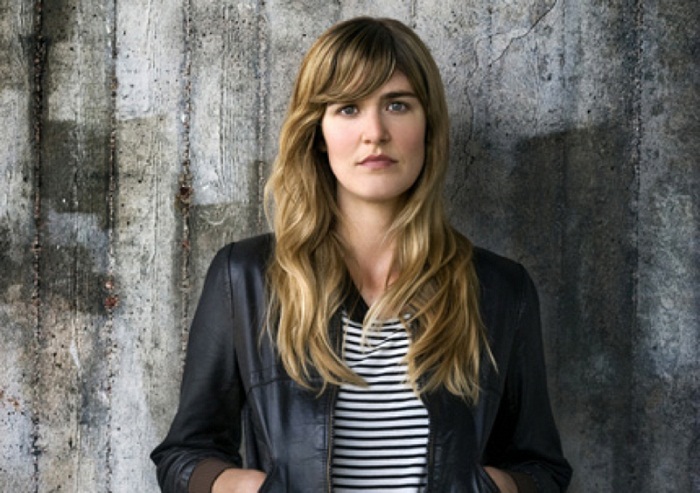
Lisa Langseth was born in Stockholm, Sweden and studied at the Stockholm Academy of Dramatic Arts. She is a playwright and director of theatre. Her film
directing credits include the short Godkand (06) and the features Pure (09). Hotell is a part of the Contemporary World Cinema
program at TIFF.
Women and Hollywood : Give us your description of your film playing at TIFF.
Lisa Langseth: Hotell is about a group of people in group therapy who become tired of processing their individual traumas. Instead of dealing with
their issues in a classic therapeutic way they decide to escape their own identities, focusing instead on dreamed up identities — who they would like to
be. They decide to take a vacation from themselves, inventing new identities by checking in to a Hotel as somebody else.
WaH: What drew you to this script? If you are the writer too, why did you write this script?
LL: I was going through a rough time in my life and had a lot of thoughts on how one becomes the person that you are. What is it that creates who I am? And
to what extent can you affect the person that you have become? I think these questions are on a lot of people’s minds today. This is something all the
characters in the film reflect upon and the narrative as a whole revolves around questions of identity and personas.
WaH: What was the biggest challenge?
LL: The biggest challenge was to maintain the naturalism of the acting, even though the scenes at times were a bit bizarre. The storyline gets a bit absurd
at times and that made it extremely important for me to keep the credibility of everything that was happening.
WaH: What advice do you have for other female directors?
LL: My advice, regardless of gender is: 1) Only work with projects you love. That will make your creativity blend with your vitality, and the project will
create itself. 2) Don’t have a kids with a jerk. It will have a negative impact on your work.
WaH: What’s the biggest misconception about you and your work?
LL: My films require that the spectator ask the big existential questions. If you’re not interested of turning inwards for answers, my films won’t fulfill
their whole purpose.
WaH: What are the biggest challenges and or opportunities for the future with the changing distribution mechanisms for films?
LL: It’s hard to predict exactly how the market will change and evolve. The opportunity is more platforms for watching films and with that a better chance
to reach a wider audience. One of many challenges is of course to create a legal basis for copyright issues that’s up to date with both modern
distribution, consumer behavior and the rights and needs of creators and copyright holders.
WaH: Name and motivate your favorite film directed by a woman
LL: I love the film Polisse by the French director Maiwenn. Polisse has a unique blend of pitch-black seriousness and humor that makes
life’s most heavy subjects relatable. The acting is amazing and it mixes naturalism with a conscious imagery. I also like Jane Campion for her humanity and
Sofia Coppola for her awareness of imagery.






